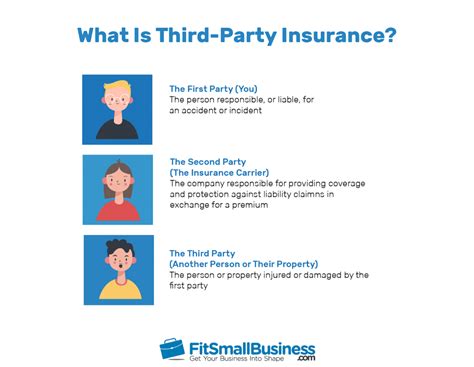Learn the importance, benefits, and workings of accounts receivable insurance. Find the right provider and protect your business’s cash flow.
Understanding Accounts Receivable Insurance
Contents
Accounts Receivable Insurance, often referred to as credit insurance, is a risk management solution that protects businesses against the non-payment of trade debt. This type of insurance provides coverage for businesses that sell goods or services on credit terms, and ensures that they will still receive the money owed to them even if their customers are unable to pay.
With Accounts Receivable Insurance, businesses are able to safeguard their cash flow and mitigate the risks associated with selling on credit. This means that in the event of a customer’s insolvency, bankruptcy, or protracted default, the business will still be able to recover the outstanding amount. This can be especially beneficial for businesses that rely heavily on a small number of key customers, helping to reduce the impact of bad debt on their financial stability.
One of the key features of Accounts Receivable Insurance is that it can be tailored to meet the specific needs of a business. This means that the coverage can be adjusted to reflect the level of risk involved in selling to different customers or in different markets. Additionally, Accounts Receivable Insurance can also provide protection against political risks, such as currency inconvertibility or non-transfer, which can be particularly valuable for businesses operating in international markets.
Overall, Accounts Receivable Insurance is a valuable tool for businesses looking to protect themselves against the risks associated with selling on credit. By providing coverage for non-payment of trade debt, this type of insurance can help businesses to safeguard their cash flow, increase their borrowing capacity, and protect their profitability.
The Importance of Accounts Receivable Insurance
Accounts receivable insurance is an important tool for businesses of all sizes, providing protection against the risk of non-payment by customers. By securing accounts receivable insurance, businesses can safeguard their cash flow and minimize the impact of bad debt on their bottom line.
This type of insurance is particularly important for businesses that rely heavily on credit sales, as it can help mitigate the financial impact of customer insolvencies, defaults, and other unforeseen events.
Accounts receivable insurance provides a safety net for businesses, allowing them to continue operating even in the face of non-payment or delayed payment from customers. This can be especially crucial for small and medium-sized businesses, which may be more vulnerable to the negative consequences of unpaid invoices.
Furthermore, accounts receivable insurance can also improve a company’s borrowing capacity and credit terms with lenders, as it provides a level of protection for outstanding receivables.
In today’s uncertain economic climate, the importance of accounts receivable insurance cannot be overstated. It offers a valuable layer of financial security, helping businesses navigate the challenges of volatile markets and economic downturns, and ensuring their continued stability and growth.
How Accounts Receivable Insurance Works
Accounts Receivable Insurance works by providing protection to businesses against losses from non-payment of commercial trade debt. When a business sells goods or services on credit, there is always a risk that the customer may default on payment. In such cases, accounts receivable insurance provides coverage for the outstanding invoices, protecting the business from financial loss.
Under this type of insurance, the insurer will typically conduct a credit assessment of the business’s customers to minimize the risk of default. Once a customer fails to make payment within the agreed-upon terms, the business can file a claim with the insurance company to recoup the outstanding amount.
Furthermore, accounts receivable insurance can also help businesses secure financing from lenders, as it provides a layer of security for the outstanding receivables. This can be particularly beneficial for small and medium-sized businesses that may struggle with cash flow issues due to late or non-payment from customers.
Overall, accounts receivable insurance works as a valuable risk management tool for businesses, offering peace of mind and financial protection in the event of non-payment by customers. By transferring the risk of non-payment to the insurer, businesses can focus on their core operations and growth without the constant worry of potential bad debts.
Benefits of Accounts Receivable Insurance
Accounts receivable insurance offers a variety of benefits to businesses who need financial protection. One of the main advantages of this type of insurance is that it provides coverage for unpaid invoices due to insolvency, bankruptcy, or protracted default. This means that even if your clients are unable to pay their debts, you can still receive the money owed to you, which is crucial for maintaining cash flow and keeping your business operations afloat.
Additionally, accounts receivable insurance can also protect your business from political risks, such as currency inconvertibility, government contract frustration, and political violence. This type of coverage can be invaluable for businesses that operate in international markets or in regions with unstable political environments, as it provides a safety net against unpredictable events that could impact your receivables.
Furthermore, having accounts receivable insurance can enhance your borrowing capacity with financial institutions. Lenders may view your business as less risky if you have insurance coverage for your accounts receivable, which can make it easier for you to access the capital you need to grow and expand your operations.
Another important benefit of accounts receivable insurance is that it can provide credit risk assessment services to help you evaluate the financial stability of your customers. This can help you make more informed decisions about extending credit and minimize the risk of bad debt by identifying potential issues before they escalate.
Choosing the Right Accounts Receivable Insurance Provider
When it comes to choosing the right accounts receivable insurance provider, there are several factors to consider. First and foremost, it’s important to research the reputation and track record of potential providers. Look for a company with a strong history of financial stability and a proven track record of delivering on their promises to policyholders. You’ll also want to consider the specific industry expertise of the provider, as well as their willingness to customize coverage to meet the unique needs of your business.
Additionally, take the time to understand the claims process of each potential provider. A responsive and efficient claims process is crucial in the event that you need to file a claim, so be sure to inquire about the provider’s claims handling procedures and turnaround times. It’s also a good idea to seek out customer reviews and testimonials to get a sense of the level of customer service and support you can expect from each provider.
Another important consideration when choosing an accounts receivable insurance provider is the breadth and depth of coverage offerings. Look for a provider that offers a comprehensive range of coverage options and can tailor a policy to meet your specific needs and requirements. The provider should be able to offer coverage for both domestic and international accounts, as well as coverage for a wide range of industries and customers.
Finally, don’t forget to consider the cost of coverage when choosing the right accounts receivable insurance provider. While cost shouldn’t be the sole determining factor, it’s important to find a provider that offers competitive rates and transparent pricing. Be sure to compare quotes from multiple providers to ensure that you’re getting the best value for your insurance investment.












